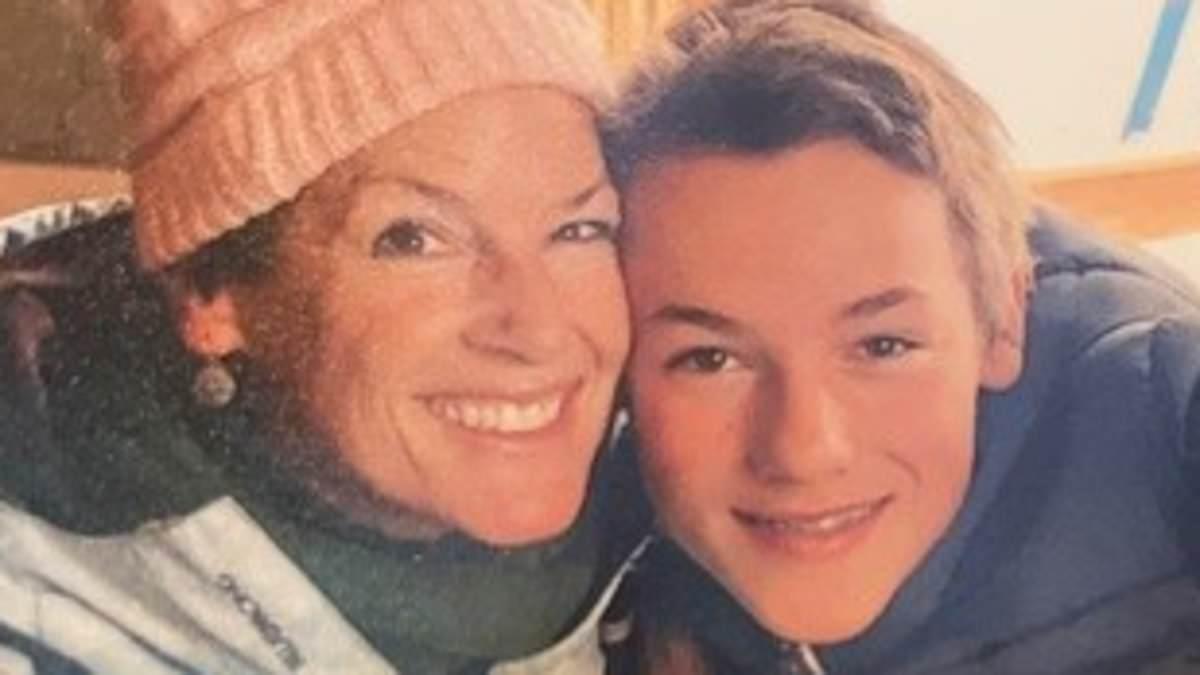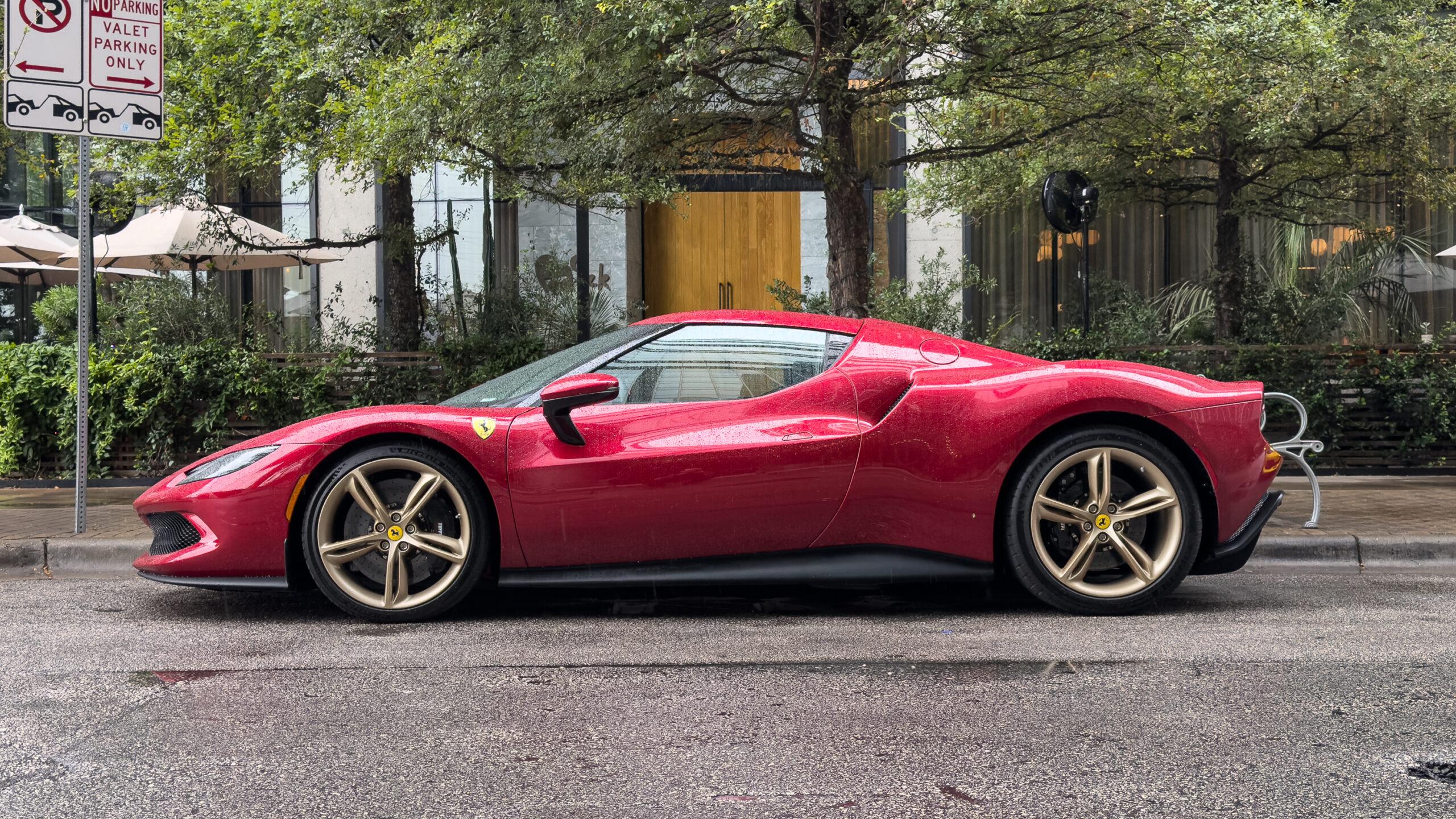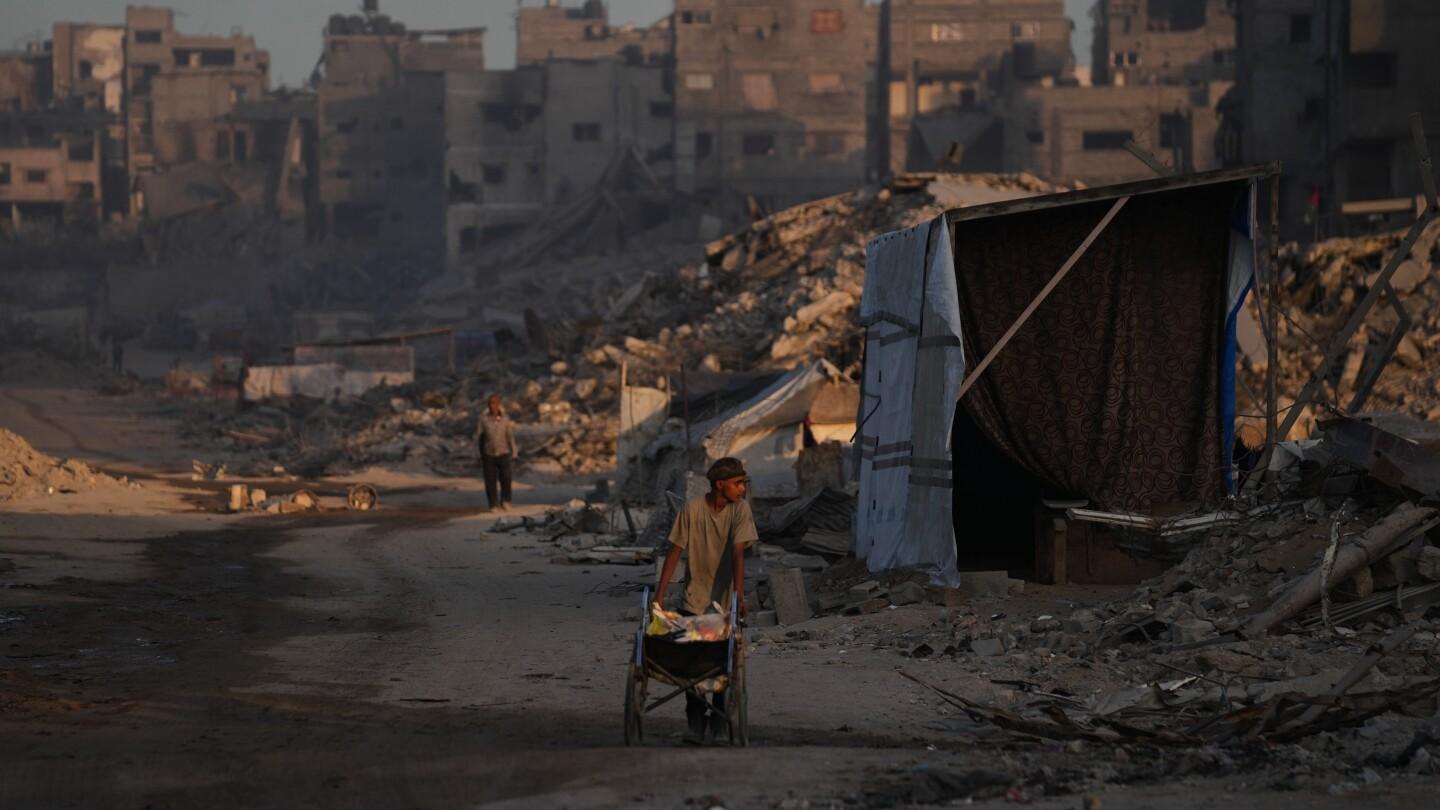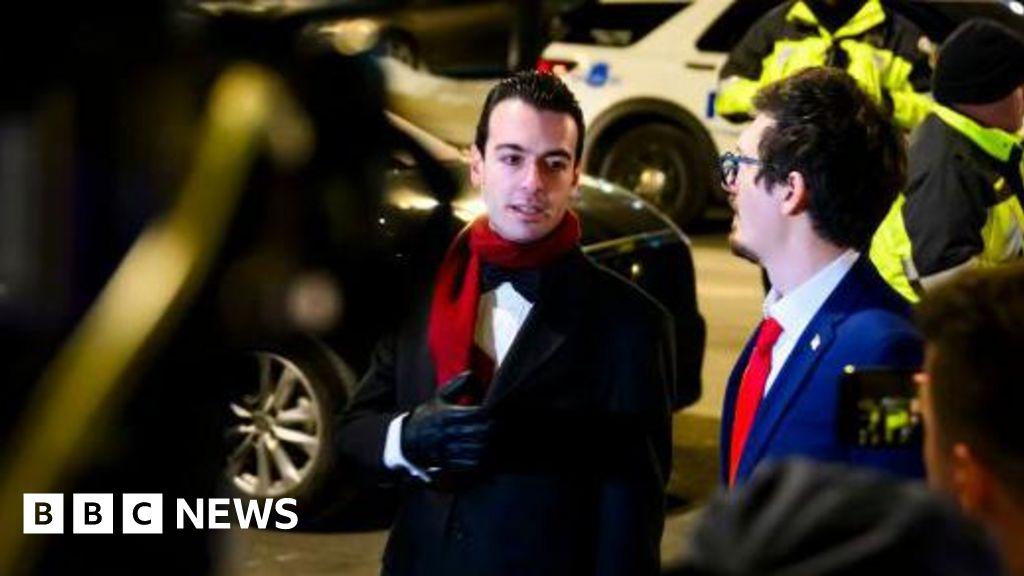In June 2020, Brody Huber came home early from a hike, complaining of a headache and insisting he needed a night in his bed.Eight months later, he died of aggressive cancer.
My son died eight months after being diagnosed with advanced cancer...His death paves the way for a cure
- Read more: Deadly cancer among young people on the rise, experts warn
In June 2020, Brody Hooper arrived home from a camping trip early, complaining of a headache and insisting he needed a night in bed.
The 13-year-old from Denver had grown six inches in the few months since the Covid pandemic began, so at first the headaches that wouldn't go away seemed like a side effect of being a growing teenager.
But Brody, nicknamed 'Golden Boy's' by his friends and family, lives for cycling camping and spends as much time as possible, so cutting his trip short is a red flag.
Brodie's mother, Tina Porter, said to the Daily Mail that since childhood, despite coming down with serious illness such as Pneumonia and RSV, he 'never complained' from his sick or in pain.
But in the months leading up to the June 2020 tour, Brodie has been typically active after pausing for a nap, pushing plans to ride a bike with older brother Griffin.
"Porter" is the health suit."I had a sense of humor."
For peace of mind, Ware and her husband, Jeff Huber, asked doctors to take Brody's brain, thinking it would clear things up.
However, the image turned out to be a rare and aggressive brain tumor.Eight months later, Brody died at the age of 14.
Brody Huber, pictured here in 2020, at age 13, was diagnosed with a different form of midline GLIOMA (DMG), the most aggressive brain tumor diagnosed in children.Most patients die within a year, and 99 percent survive less than five years
A few days after the MRI, Mr Maori was called by the doctors and asked, 'Are you okay?'
They told the bush that something important was happening.
The atotic teenager was so fed up with himself that his mother and brother tried to open the door for him.
"I'm like, 'Oh my God,'" "It's true," he said.
Jeff, who works as a medical assistant, saw on the scan that 'dads will never see inside their child's head.'
An MRI revealed that Brody had a "pretty significant tumor" surrounding his thalamus, a structure in the middle of the brain that controls motor functions such as walking and balance.
Two days later, a biopsy of the tumor revealed that Brady had a diffuse midline glioma (previously called diffuse intrinsic pontine glioma), a more aggressive brain tumor often diagnosed in children.
Fewer than 500 Americans are diagnosed with various midline gliomas (DMG) each year, and they make up one in five of all childhood brain tumors.
Patients generally live less than a year after diagnosis.According to the American Tumor Association, 99 percent of patients diagnosed with DMG will die within five years.
Given to a woman in nine months.
‘There is no platform.This is the worst.'Porter told the doctors.
BRODY (left side, same as left side, picture.
Brody, pictured here, insisted on running stairs after cancer treatment, until he physically couldn't anymore, his mother told the Daily Mail.
Like most DMGs, Brody's tumor was so densely located in the thalamus that surgery was not possible because surgery would likely cause permanent brain damage.
Instead, he underwent six weeks of radiation therapy, as well as traditional Eastern therapies including meditation, acupuncture, massage and reiki, a Japanese form of energy healing that involves placing hands on or just above a person's body and redirecting energy.
Porter said: 'I was like, we're going to do everything we can, and he's going to be the poster child for this disease.You don't know Brody.
'We don't know what we are capable of.This is not the end of his story.'
A few months later, Brody was enrolled in a clinical trial at the Vitanza Lab at Seattle Children's Hospital.
By finding a doctor, he created a surgical procedure for DMG doctors that involved fluid in the DMG device using a well-known surgical method.
Patients in the trial received T-Gritch Antium (vehicle) T-Cell Trans therapy, a drug therapy that uses the patient's immune cells to fight cancer.
The family flew to Seattle in December 2020 so doctors could collect and begin processing Brody's red blood cells before the trial began in March 2021.
Jeff Huber, Brody's father, is pictured above hugging him.Brody died of DMG on March 8, 2021, at the age of 14.
Brody (second from right) was scheduled to begin a clinical trial at Seattle Children's Hospital, but died eight days early.
But in February 2021, Scohan Scare Mraile showed that the brain is like a sponge that has absorbed all the cancer, he said.The disease spread throughout his brain.
"It just got worse," he added. "And that's when the doctors said there was nothing they could do.""
Wife will not be able to participate in drug trials.
Brody's legs buckled under him as they left the doctor's office.The child, who had insisted on the stairs at the start of treatment, now needed a wheelchair to get him home.
"I really thought I had it, mom," Porter told the Daily Mail her son told her.
Brady died about a month later, on March 8, 2021, eight months after his diagnosis.
His death occurred eight days before the start of clinical trials in Dr Vitanza's laboratory.Porter later discovered that a boy named Levi had taken his place, and after participating in the trial, the baby lived nine months longer than expected.
"And there have been more children with the same tumor who are still alive," Porter said.“Whatever they do at Vitanza Lab, they save children's lives.
After the death, the lion family raised money for Seattle Children's Hospital, which is conducting clinical trials for children with DMD.
At the beginning of last yearDr. Vitanza's team has published results of a Phase 1 clinical trial, which found that CAR-T cell therapy was well tolerated in 21 patients with an average age of just six years.
Children lived an average of 20 months after diagnosis, almost twice as long as the average 11 months.
And three patients in the study were still alive four years after their previous diagnosis.
Brody personally decided before his death to donate his entire brain and spine to science for research, and in the months that followed, his family established the Brody Hopper Foundation, which to date has raised $85,000 to help fund the Vitanza lab's research.
On November 21, 2025, which would have been the 19th birthday, the foundation held its annual fundraiser with the intention of sending a vitanza of vitanzan to DMG.
"Breen didn't want to hurt anyone else," Porter told the Daily Mail.







